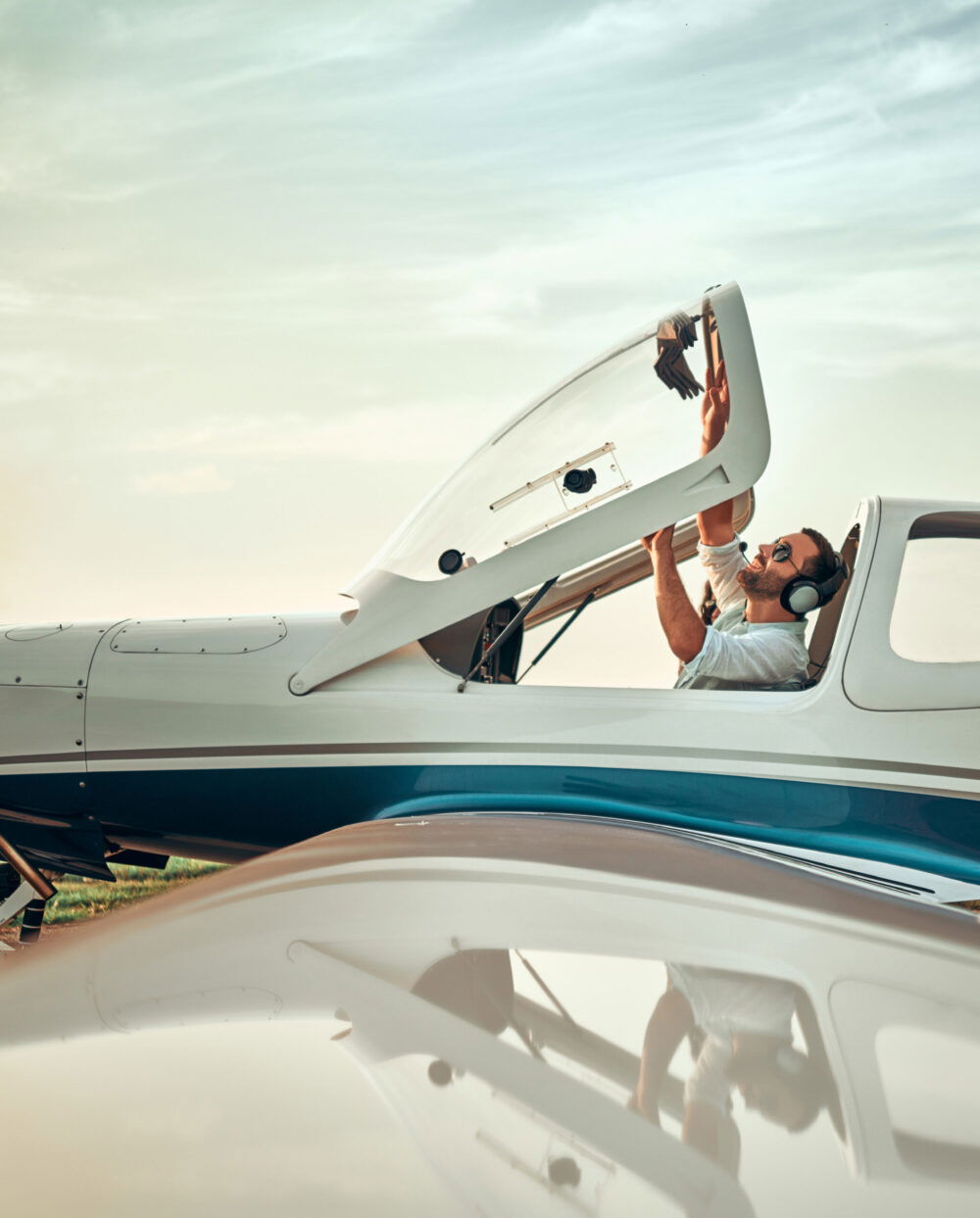A few months after selecting a trio of suppliers, Eve Air Mobility—the electric vertical takeoff and landing (eVTOL) manufacturing subsidiary of Embraer—has named three more.
Brazil-based Eve on Monday picked out suppliers for the flight controls, avionics, and thermal management system of its electric air taxi. The aircraft is designed to ferry as many as four passengers on short-hop flights over distances of up to 60 sm (52 nm).
Avionics OEM Garmin will send Eve its G3000 integrated flight deck, which is also being installed on eVTOLs built by Archer Aviation, Joby Aviation, and Beta Technologies, three American competitors.
The lightweight, high-resolution, touch-screen glass displays will integrate with the air taxi’s vehicle management and flight control systems. They’ll give pilots access to a full suite of avionics capabilities, including an integrated flight management system, nav/com radios, and transponder functions. Applications such as charts, checklists, synoptics, and maps will also be accessible, as with current G3000 installations in conventional airplanes.
The aircraft’s electromechanical actuators will be provided by OEM Liebherr-Aerospace. Powered by the vehicle’s electrical system, the actuators are expected to boost performance and configurability while simplifying maintenance.
A third supplier, aerospace and defense manufacturer Intergalactic, will support the eVTOL with its thermal management system. Eve will rely on it to maintain an optimal temperature range for onboard equipment such as batteries while keeping the cabin comfortable for passengers.
Monday’s news follows Eve’s announcement of another trio of partners in June: Nidec Aerospace will provide the aircraft’s electric propulsion system, BAE Systems will supply the energy storage system, and Duc Hélices Propellers will provide rotors and propellers.
“We are looking forward to working with each of our suppliers as we progress with our eVTOL development,” said Johann Bordais, who was appointed CEO of Eve in July. “Each of our suppliers undergoes a very stringent review that evaluates not only performance and quality of their product but also their dedication to continuous improvement and customer support and satisfaction.”
Eve’s eVTOL is a lift-plus-cruise design, with eight propellers for vertical flight and fixed wings for cruise. It has no moving parts, unlike the “tiltrotor” designs of Joby and Archer, which feature sets of propellers that rotate forward to add thrust.
The manufacturer’s most recent design update added an electric pusher, which is powered by dual electric motors. The pusher will provide redundant propulsion and improved performance and safety, the company said. It’s also expected to offer efficient thrust with lower sound and operating costs, fewer parts, and optimized systems and structures.
In July, Eve and Embraer announced the site of Eve’s first eVTOL production facility in Taubaté, Brazil. There, the company has begun assembling its first full-scale prototype, which is expected to begin a test campaign next year. Joby and Archer recently began flying their full-scale prototypes, while Germany’s Volocopter started testing its prototype last year. Another German manufacturer, Lilium, is assembling its type-conforming production model.
Given all the suppliers Eve is working with, the company partnered with DHL Supply Chain to study the best practices for moving components from point A to point B. It has also been working with Porsche Consulting since 2022 to refine its supply chain, logistics, and global manufacturing strategy.
Once its eVTOL is assembled, tested, and certified, Eve expects to begin deliveries and commercial launches in 2026. It plans to fly air taxi routes in San Francisco through an agreement with United Airlines, which is also partnering with Archer on services in Chicago, New York City, and Los Angeles. The airline is an investor in both companies.
The Brazilian manufacturer has further agreements with Blade Urban Air Mobility to launch routes in South Florida, Republic Airways to fly over Northeast cities such as Boston, New York, and Washington, D.C., and SkyWest to roll out service nationwide.
Beyond those partnerships, Eve has orders and launch partners around the world, including in France, Scandinavia, Kenya, Australia, the United Arab Emirates, its home country Brazil, and elsewhere in Latin America.
According to SMG Consulting’s latest Advanced Air Mobility Reality Index—which assesses a variety of metrics to measure manufacturers’ ability to deliver and mass produce a certified aircraft—Eve has nearly double the orders of the next highest firm, Electra.aero. With about 2,900 orders in its backlog, the company is among the most well prepared to capture AAM market share once it achieves certification and scaled production.
Like this story? We think you’ll also like the Future of FLYING newsletter sent every Thursday afternoon. Sign up now.




